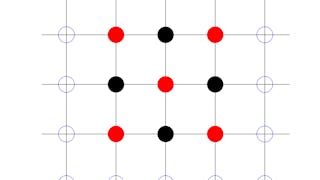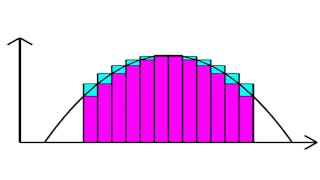Filter by
SubjectRequired
LanguageRequired
The language used throughout the course, in both instruction and assessments.
Learning ProductRequired
LevelRequired
DurationRequired
SkillsRequired
SubtitlesRequired
EducatorRequired
Explore the Logic Course Catalog
 Status: Free Trial
Status: Free TrialJohns Hopkins University
Skills you'll gain: Calculus, Integral Calculus, Advanced Mathematics, Mathematical Theory & Analysis, Applied Mathematics, Numerical Analysis, Mathematical Modeling
 Status: Free Trial
Status: Free TrialThe Hong Kong University of Science and Technology
Skills you'll gain: Matlab, Engineering Calculations, Numerical Analysis, Mathematical Software, Engineering Analysis, Linear Algebra, Differential Equations, Applied Mathematics, Mathematical Modeling, Simulation and Simulation Software, Computational Thinking, Estimation, Integral Calculus, Scripting, Simulations, Calculus, Scientific Visualization, Programming Principles, Plot (Graphics), Algorithms
 Status: Free Trial
Status: Free TrialJohns Hopkins University
Skills you'll gain: Calculus, Applied Mathematics, Trigonometry, Advanced Mathematics, Mathematical Modeling, Algebra, Derivatives, Geometry
 Status: New
Status: NewThe Hong Kong University of Science and Technology
Skills you'll gain: Calculus, Engineering Calculations, Differential Equations, Integral Calculus, Engineering Analysis, Applied Mathematics, Numerical Analysis, Algebra, Advanced Mathematics, Trigonometry, Physics, Mathematical Theory & Analysis, Derivatives

National Taiwan University
Skills you'll gain: Information Systems, Information Management, Business Logic, Data Structures, Transportation Operations, Production Planning, Operations Management, Business Operations, Inventory Control, Logistics, Algorithms, Programming Principles, Computer Programming, Python Programming, Decision Making

University of Minnesota
Skills you'll gain: Dimensionality Reduction, NumPy, Linear Algebra, Machine Learning Methods, Data Analysis, Numerical Analysis, Mathematical Modeling, Applied Mathematics, Applied Machine Learning, Data Manipulation, Exploratory Data Analysis, Algorithms, Python Programming

École Polytechnique
Skills you'll gain: Probability, Probability Distribution, Probability & Statistics, Advanced Mathematics, Mathematical Theory & Analysis, Simulations, Statistical Methods, Statistical Inference

The Chinese University of Hong Kong
Skills you'll gain: Digital Communications, Theoretical Computer Science, Telecommunications, Information Management, Probability, Probability Distribution, Technical Communication, Algorithms, General Mathematics

Skills you'll gain: Geometry, Integral Calculus, Calculus, Applied Mathematics, Linear Algebra, Advanced Mathematics, Derivatives, Algebra, Mathematical Theory & Analysis, Graphing

Korea Advanced Institute of Science and Technology(KAIST)
Skills you'll gain: Linear Algebra, Artificial Intelligence and Machine Learning (AI/ML), Artificial Intelligence, Applied Mathematics, Deep Learning, Machine Learning, Supervised Learning

Skills you'll gain: Linear Algebra, Applied Mathematics, Algebra, Engineering Calculations, General Mathematics, Calculus, Mathematics and Mathematical Modeling, Advanced Mathematics, Differential Equations, Mathematical Modeling, Mathematical Theory & Analysis, Geometry
 Status: Free Trial
Status: Free TrialJohns Hopkins University
Skills you'll gain: Applied Mathematics, Estimation, Numerical Analysis, Calculus, Cost Estimation, Mathematical Modeling, Operations Research, Derivatives, Algebra
In summary, here are 10 of our most popular logic courses
- Calculus through Data & Modelling: Series and Integration: Johns Hopkins University
- Numerical Methods for Engineers: The Hong Kong University of Science and Technology
- Calculus through Data & Modeling: Differentiation Rules: Johns Hopkins University
- Calculus for Engineers: The Hong Kong University of Science and Technology
- 用 Python 做商管程式設計(一)(Programming for Business Computing in Python (1)): National Taiwan University
- Matrix Methods: University of Minnesota
- Aléatoire : une introduction aux probabilités - Partie 2: École Polytechnique
- Information Theory: The Chinese University of Hong Kong
- Çok değişkenli Fonksiyon I: Kavramlar / Multivariable Calculus I: Concepts: Koç University
- Math for AI beginner part 1 Linear Algebra: Korea Advanced Institute of Science and Technology(KAIST)










